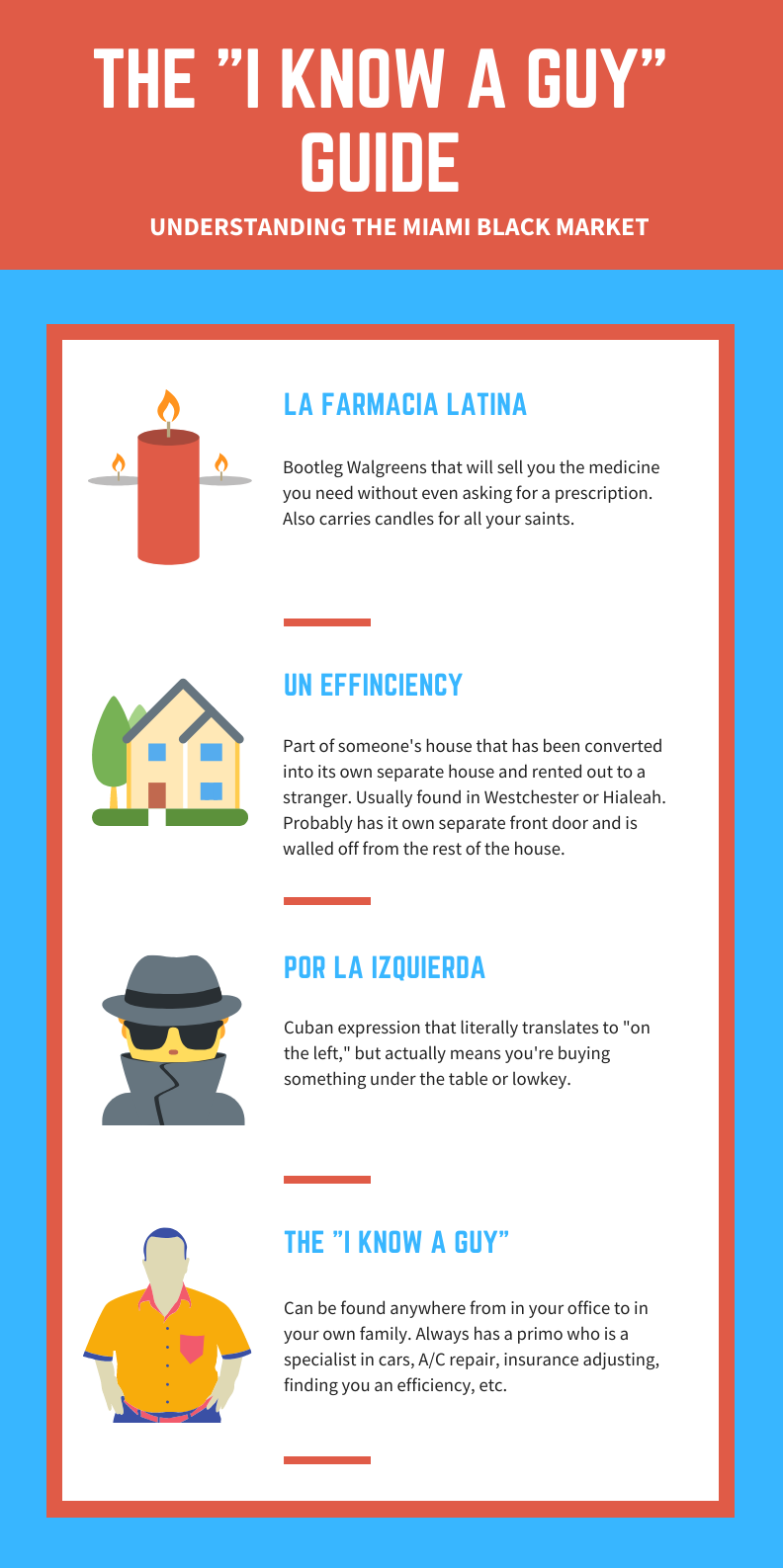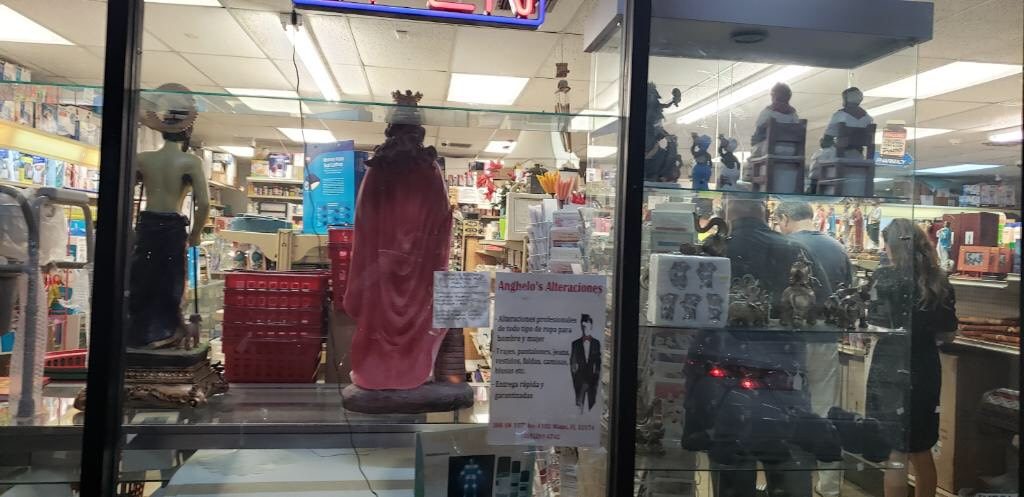Whether it’s buying off-brand uniform pants at Valsan, medicine from a “Latin Pharmacy” instead of Walgreens or renting out an efficiency from one of their tio’s friends in Westchester, Cuban-Americans in Miami have a cheaper alternative to just about everything.
Cuban-Americans all across Miami have at some point in their lives been a part of this shadow market, often through family members or co-workers.
It starts with someone complaining about the cost of rent or fixing a car. The first couple of people you talk to tell might not help much, but then you find the “I know a guy” person.
Every group seems to have one. He or she somehow has a friend in just about every business, who coincidentally specializes in the exact thing you need help with, or who you can buy things “por la izquierda.”
“The first time I heard people say “por la izquierda” was when I first came from Cuba, I think it’s something people only say here in Miami,” said Marta Perez. “It was usually used for people who were getting paid under the table at companies because they didn’t have the papers to work yet. But now it’s used for basically anything you can get done cheaper on the side.”

The term has become well known among Cubans in Miami, and applies to anything that can be done by someone who doesn’t have a license for it or anything that can be bought for a much cheaper price.
“Everybody in Miami has a primo (cousin) or an uncle that’s a plumber, mechanic, insurance adjuster, you name it,” says Perez. “Like if your car is acting up they’ll tell you ‘don’t worry about it, my primo will fix it for you and he’ll only charge you for the parts.’ Then they bring a used part from another car and you can end up like my uncle who had a small fire in his car and had to take it to a real mechanic anyway.”
But this “por la izquierda” phenomenon in Miami doesn’t just apply to specific people who can help you out, the “I know a guy” expression can also come in the form of “I know a place.”
There’s just certain problems one primo or tio can’t solve, and that’s when you’ll be directed to none other than La Farmacia Latina aka the blackmarket Walgreens.
“Come on, everyone knows about the Latin pharmacy. They’re always in a strip mall and on all the most important streets in Miami. Flagler, 107 — they all have one,” said Carmen Rosario. “People don’t want to go through the hassle of paying to go to the doctor and getting a prescription, especially if you don’t have insurance. You go to La Farmacia Latina and they give you whatever medicine you need without any of that.”
Rosario, who is Costa Rican, says these pharmacies aren’t just known by Cubans, but by almost all Hispanics in Miami.
“You go there and you say my tooth hurts, I have a bad infection. They look at it, tell you to take this antibiotic for a week and you’re out of there with what you need for only $20,” says Rosario. “They also sell candles for all the saints, so you can pray while you’re recovering from your sickness.”

But why stop at basic needs like car repairs and bootleg medicines, if you know a guy you might as well have him work out your living situation too.
Cubans know this doesn’t mean the “I know a guy” will be moving them into a normal apartment. Instead, they’ll be living in the garage of his buddy “Humberto” who has four teenage kids who aren’t crazy with the idea of having a new middle-aged roommate.
“One day you just come home from school, you decide to go through the side door of your house and you walk in on five random Cuban guys playing cards in your garage. Apparently my parents hadn’t even bothered to change the locks,” says Mario Torres. “For how obsessed they were about our safety growing up, they seemed pretty okay with having a stranger live in our house.”
These “efficiencies” are probably the only time Cuban parents will allow complete strangers in their home. Sometimes it leads to to awkward conversations when their kids have to explain to friends why a random shirtless guy is sitting in front of their house smoking at 1 a.m.
“I didn’t feel like giving the whole efficiency story to my friends and explaining why we were renting out part of our house to some stranger,” said Torres. “I would just tell them it was one of my uncles from Cuba.”
But the “I know a guy” solution isn’t trusted by everyone. Particularly, it seems, “Americans” or white people are unaccustomed to hiring out work to friends and family usually done by a professional. The term is used even by Hispanics born in this country.
“My wife’s uncle recommended me to his Cuban bodyshop guys,” said Peter Mare. “I took it there just to fix the hood of the car, and it turned into this big production… So just because you know a guy doesn’t mean it’s going to be quality work.”
































